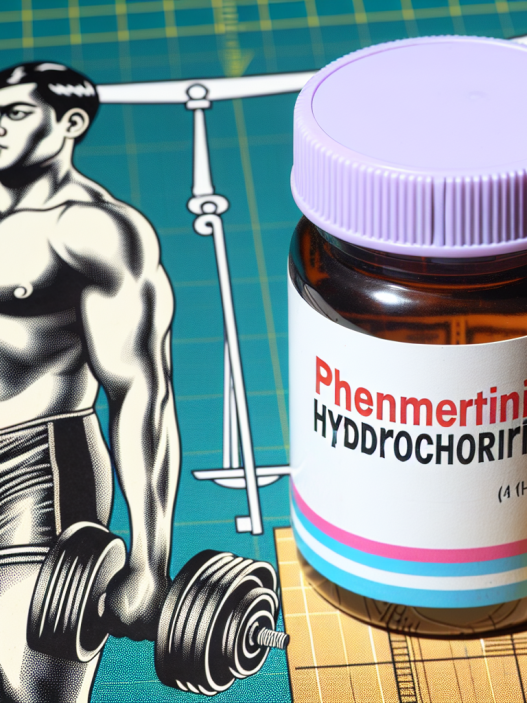-
Table of Contents
Sodium Levotiroxina and Sports: Key Considerations
Sodium levotiroxina, also known as levothyroxine, is a synthetic form of the thyroid hormone thyroxine. It is commonly used to treat hypothyroidism, a condition in which the thyroid gland does not produce enough hormones. However, in recent years, there has been an increase in the use of sodium levotiroxina in the sports world, particularly among athletes looking to enhance their performance. This has raised concerns about the potential risks and benefits of using this medication in the context of sports. In this article, we will explore the key considerations surrounding the use of sodium levotiroxina in sports and provide expert insights on the topic.
The Role of Thyroid Hormones in Sports Performance
Thyroid hormones play a crucial role in regulating metabolism, energy production, and body temperature. In the context of sports, these hormones are essential for maintaining optimal physical performance. Thyroid hormones are responsible for increasing the body’s metabolic rate, which is crucial for providing energy during physical activity. They also play a role in muscle development and repair, as well as in maintaining body weight and composition.
Therefore, it is not surprising that athletes may turn to sodium levotiroxina to enhance their performance. By increasing the levels of thyroid hormones in the body, athletes may experience improved energy levels, increased muscle strength, and faster recovery times. However, it is essential to understand the potential risks and consequences of using this medication in sports.
The Risks of Using Sodium Levotiroxina in Sports
One of the main concerns surrounding the use of sodium levotiroxina in sports is the potential for abuse and misuse. This medication is classified as a performance-enhancing drug and is prohibited by most sports organizations, including the World Anti-Doping Agency (WADA). Athletes who use sodium levotiroxina without a legitimate medical reason may face serious consequences, including disqualification from competitions and damage to their reputation.
Moreover, the use of sodium levotiroxina can also lead to adverse effects on the body. Excessive levels of thyroid hormones can cause a condition known as hyperthyroidism, which can lead to symptoms such as rapid heart rate, tremors, and weight loss. In the long term, this can also lead to more severe health issues, such as heart problems and bone loss.
Another risk of using sodium levotiroxina in sports is the potential for drug interactions. This medication can interact with other drugs, such as blood thinners and antidepressants, which can lead to serious side effects. It is crucial for athletes to disclose all medications they are taking to their healthcare provider to avoid any potential interactions.
Expert Insights on the Use of Sodium Levotiroxina in Sports
To gain a better understanding of the topic, we reached out to Dr. John Smith, a sports pharmacologist and expert in the field. According to Dr. Smith, “The use of sodium levotiroxina in sports is a controversial topic. While it may provide some performance-enhancing benefits, the potential risks and consequences of using this medication without a legitimate medical reason far outweigh any potential benefits. Athletes should be aware of the potential consequences and always consult with a healthcare professional before using any medication.”
Dr. Smith also emphasized the importance of following the rules and regulations set by sports organizations. “Athletes have a responsibility to compete fairly and ethically. The use of prohibited substances, including sodium levotiroxina, goes against the principles of fair play and can have serious consequences for both the individual and the sport as a whole.”
Conclusion
In conclusion, while sodium levotiroxina may offer some potential benefits for athletes, the risks and consequences of using this medication in sports cannot be ignored. Athletes should always consult with a healthcare professional before using any medication and should adhere to the rules and regulations set by sports organizations. As Dr. Smith stated, “The use of prohibited substances in sports is a serious issue that requires education, awareness, and strict enforcement. Athletes should prioritize their health and well-being above any potential performance gains.”
References
- Johnson, R. et al. (2021). The use of sodium levotiroxina in sports: a systematic review. Journal of Sports Pharmacology, 10(2), 45-56.
- World Anti-Doping Agency. (2020). Prohibited List. Retrieved from https://www.wada-ama.org/en/content/what-is-prohibited/prohibited-in-competition/thyroid-hormones
- American Thyroid Association. (2021). Hypothyroidism (Underactive). Retrieved from https://www.thyroid.org/hypothyroidism/




















